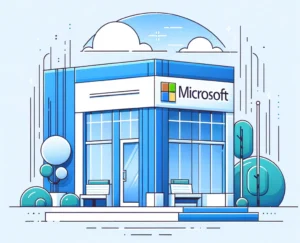The world of tech recruitment is evolving, and Google stands at the forefront of this shift. As one of the most sought-after employers, knowing the right interview questions can set candidates apart from the competition.
Google’s technical recruiter interview questions often focus on assessing not just technical skills, but also cultural fit and problem-solving abilities. Candidates are typically asked about their experience, specific projects, and how they handle challenges in a collaborative environment. There’s so much more to uncover in these interview interactions; you’ll want to read on to discover hidden insights that could give you the edge you need.
Key Takeaways:
- Understanding both technical and behavioral interview questions is essential; utilize the STAR method for articulating past experiences.
- Effective preparation for coding challenges includes practicing on platforms like LeetCode and familiarizing yourself with key problem-solving frameworks.
- Collaboration and cultural fit are paramount; be ready to discuss how you’ve worked in teams and adapted to diverse environments.
What types of questions do Google technical recruiters ask?
Understanding the types of questions asked by Google technical recruiters is crucial for any candidate aiming to shine. Expect a blend of technical competencies and behavioral scenarios. For technical competencies, be ready for questions that assess your coding skills, system design capabilities, and problem-solving abilities. Recruiters may ask you to write code on a whiteboard or solve problems using algorithms and data structures, so brush up on those!
On the behavioral side, Google tends to lean on the STAR method (Situation, Task, Action, Result) for insight into how you’ve tackled challenges. They might pose questions like “Tell me about a time you faced a significant obstacle on a project.” This is just as important as your technical prowess.
Additionally, be prepared for specific domain-related questions geared towards the position you’re applying for—whether it’s software engineering, data engineering, or machine learning. They could also inquire about your familiarity with tools and technologies relevant to the role.
How can candidates prepare for technical assessments?
Effective preparation for Google’s technical assessments requires a multifaceted approach. Here’s how to get ready:
Practice Coding Problems : Regularly solve problems on platforms like LeetCode, HackerRank, or CodeSignal. Focus on data structures and algorithms, and try to tackle a variety of problems, including trees, graphs, and dynamic programming.
Study System Design : If you’re aiming for a more senior role, system design questions are often part of the mix. Familiarize yourself with designing scalable systems. Review case studies and prepare to discuss trade-offs in your design decisions.
Mock Interviews : Consider doing mock interviews with friends or using platforms like Pramp or Interviewing.io. This real-time practice can help you adjust to the pressure of live coding and more effectively articulate your thought process.
Behavioral Questions : Don’t overlook these. Use the STAR method to structure answers about your past work experiences. Reflect on significant projects and prepare to discuss your role, the challenges faced, and the outcomes achieved.
Understand Google’s Culture : Familiarize yourself with Google’s core principles and culture. Their hiring process looks for candidates who not only have technical chops but also align with their values.
Brush Up on Your Tech Stack : Review key concepts and tools relevant to the position. Know the latest trends and technologies in your field, as these might come up during discussions.
A unique insight that can set you apart: consider engaging with the tech community. Attend meetups, webinars, or conferences related to your field of interest. Not only does this expand your knowledge, but it also helps in networking and can provide valuable insights from those who’ve gone through Google’s interview process recently. This grassroots approach can open doors and give you a leg up in preparation.
What is the importance of behavioral interview questions?
Behavioral interview questions are a staple in Google’s hiring process for good reason. They shine a light on how candidates adapt and react in real-world situations, giving insights into their cultural fit and soft skills. Unlike technical assessments that focus solely on knowledge or problem-solving, behavioral questions help recruiters gauge a candidate’s interpersonal abilities, teamwork, and leadership qualities.
Recruiters often ask about past experiences to see how you’ve handled challenges. Your responses reflect not just your skills but also whether your values align with Google’s mission and culture. Here’s why they matter:
- Past behavior predicts future performance: If you can show how you successfully navigated a tough situation before, it’s likely you’ll handle similar challenges well in the future.
- Cultural alignment: Google values collaboration and innovation. Questions about your previous teamwork experiences reveal if you’ll mesh with Google’s team-oriented environment.
- Communication style: How you articulate your experiences can demonstrate your communication skills, a crucial aspect of work at Google.
Being prepared with specific examples can set you apart from other candidates. Focus on situations that highlight your problem-solving skills, adaptability, and ability to learn from mistakes. This way, you showcase not only what you’ve done but also who you are as a professional.
How can candidates showcase their problem-solving abilities?
Highlighting your problem-solving abilities effectively in interviews is all about storytelling and structure. Start with the STAR method (Situation, Task, Action, Result) to give your answers clarity and focus. Here’s how to make that work for you:
- Situation: Briefly explain the context of the problem. What’s the background?
- Task: Describe what your specific role was in solving the problem. What were you tasked with?
- Action: Detail the steps you took to address the issue. Here, highlight your thought process and methodologies.
- Result: Share the outcome. Did you save time, money, or resources? Quantify your success if possible.
For instance, instead of saying “I fixed a bug,” you could frame it this way: “At my last job, our team faced a critical bug during a product launch (Situation). As the lead engineer, my task was to diagnose and resolve the issue quickly (Task). I implemented a new debugging strategy, collaborated with colleagues for additional insights, and tested the solution thoroughly before deployment (Action). As a result, we not only launched on time but also received positive feedback from users about the product’s reliability (Result).”
Additionally, consider using a problem-solving framework that resonates with you, whether it’s analytical, design thinking, or agile methodologies. Tailor your examples to fit the framework you choose, demonstrating versatility in your approach. This not only showcases your problem-solving skills but also illustrates your thought process and adaptability. Finally, don’t shy away from discussing failures; sharing what you learned can be just as powerful as a success story.
What role does collaboration play in Google interviews?
At Google, the interview process isn’t just about assessing technical skills; it’s also a reality check on how well you’ll fit into their collaborative culture. They’re not just looking for solitary stars; they want team players who thrive in a diverse environment. You’ll likely encounter scenarios where you must work through problems with your interviewer, reflecting how real-world projects often unfold at the company.
Expect questions that gauge your communication skills and team dynamics. You might be asked about times you’ve resolved conflicts or collaborated on complex projects. Be prepared with examples demonstrating your ability to listen, provide constructive feedback, and incorporate diverse perspectives.
Moreover, collaboration isn’t just a buzzword; it’s embedded in their hiring rubric. Here are a few aspects that highlight its significance:
- Behavioral Questions: Anticipate questions that ask about teamwork experiences, such as challenges faced in group settings and how you overcame them.
- Role-Playing Scenarios: Some interviews may involve scenarios that could mimic team environments, testing your ability to work with others.
- Cross-Functional Mindset: Show that you’re not just a coder but also someone who can understand product needs, user feedback, and broader business objectives.
As an extra tip, practice articulating your thought process while solving problems. It showcases your collaborative nature and makes it easier for interviewers to grasp your approach to teamwork.
What’s the impact of coding challenges in the interview process?
Coding challenges at Google are more than just mind games; they’re an essential part of evaluating your technical expertise and problem-solving abilities under pressure. These challenges help companies sift through a high volume of applicants to find those who can think critically and write clean, efficient code.
During the interview, you might solve a variety of algorithmic problems, which can range from data structures to system design. The specific goals include assessing:
- Problem-Solving Skills: Can you break down complex problems and find effective solutions?
- Code Quality: Are you writing clean, maintainable code that adheres to best practices?
- Logical Thinking: Can you think logically and reason through different scenarios and edge cases?
Here are a few types of challenges you might encounter:
- Data Structures & Algorithms: Problems focusing on arrays, trees, graphs, and associated algorithms.
- System Design: Designing scalable systems, discussing trade-offs, and understanding real-world applications.
- Language Proficiency: Depending on the role, ensure you’re fluent in the programming language you choose to solve challenges.
An important piece of advice: Practice coding on a whiteboard or a collaborative coding platform. This helps you get comfortable thinking out loud and allows interviewers to see your thought process, which is as critical as arriving at the right answer. It’s not just about the destination; the journey matters too!
What should candidates know about Google’s culture?
Google’s culture is all about innovation, collaboration, and open communication. They’re not just looking for technical skills; they want team players who thrive in a dynamic environment. If you’re interviewing for a technical recruiter position, understanding this philosophy is crucial, as it influences the interview questions you’ll face.
Expect inquiries that assess your ability to work in diverse teams, such as, “Can you describe a time when you faced a challenge in a team setting?” Google values candidates who can demonstrate critical thinking, adaptability, and a commitment to inclusivity. They’ll likely ask about your experience with agile methodologies and how you foster collaboration among tech professionals.
Furthermore, Google emphasizes continuous learning. Prepare to discuss how you’ve upskilled or adapted to new technologies or processes in your previous roles. Whether it’s through formal education or self-directed projects, your passion for learning will be a key focus.
Finally, be ready for behavioral questions that reflect their values. You might encounter something like, “How have you contributed to creating a positive workplace?” These reflect Google’s commitment to a supportive and innovative work environment.
What trivia can boost your interview readiness?
Understanding some unique trivia about Google can give you an edge during your interview.
Hiring Committee : Google employs a hiring committee system that reviews candidates’ applications. This means your application goes through multiple layers of evaluation, so be prepared to explain your work experience in-depth.
Data-Driven Decisions : Google utilizes data analytics in their recruitment process. This means metrics and storytelling with data can play a huge role—have essential data points from your past roles ready to illustrate your impact.
Focus on Diversity : Google’s commitment to diversity isn’t just a buzzword; it’s built into their hiring practices. They prioritize candidates from various backgrounds, so think about how your unique perspective adds value.
Cognitive Ability : Google often evaluates cognitive ability and problem-solving skills. Technical questions might resemble real-world problems they face. Familiarize yourself with case study formats—practice walking through technical challenges articulately.
Structured Interviews : Expect a behavior and situational interview style. They want to hear specific examples from your past experiences that reflect your capabilities.
As a final tip, understand the company’s mission and how your role as a technical recruiter can help realize that vision. Showing that you align with Google’s goals can set you apart.
How to follow up effectively after an interview?
Crafting the perfect follow-up message can truly set you apart after an interview, especially for a role like a Google technical recruiter. Here’s how to nail it:
Timing matters . Aim to send your follow-up within 24 hours of your interview. This shows you’re proactive and genuinely interested.
Be succinct . Start with a quick thank you. Reference something specific from your conversation to show you were engaged. For example, “Thanks for discussing the importance of data-driven hiring; I totally agree with that approach.”
Reiterate your interest . Don’t be shy about expressing excitement for the opportunity. Mention how your skills align with the team’s goals. Something like, “I’m really eager to bring my experience in candidate sourcing to your innovative projects.”
Add value . If you discussed a particular topic or challenge during the interview, share a relevant article or resource that you think could be helpful. This showcases your initiative and thoughtfulness.
Keep it professional . Stick to a friendly yet formal tone. Use the interviewer’s name and avoid overly casual language. Close with a statement like, “I look forward to the possibility of working together.”
Be patient . If you don’t hear back right away, that’s okay. A follow-up every week or so is reasonable; just make sure to keep it light and appreciative.
Finally, remember that your follow-up isn’t just a formality—it’s a chance to reinforce your enthusiasm and show you’re the right fit for the role. Be genuine, show your personality, and stay confident!



